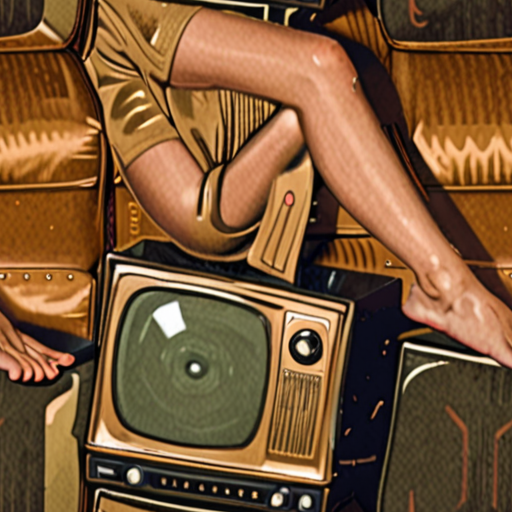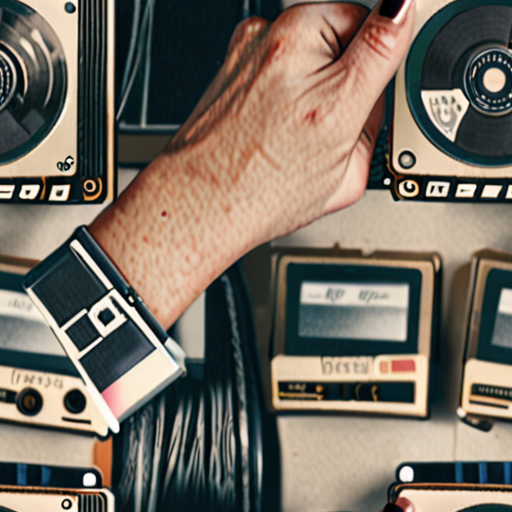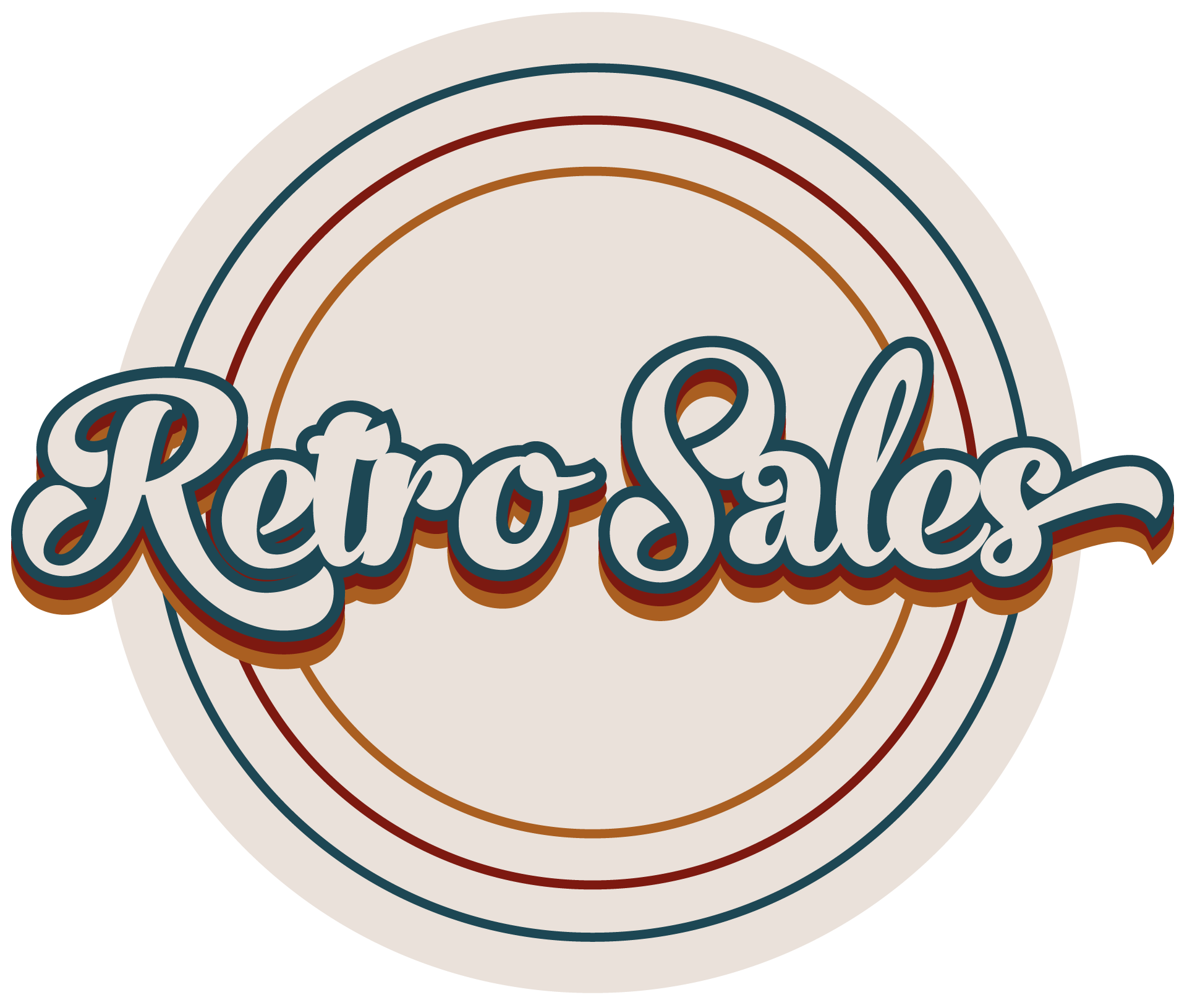As we navigate the complexities of modern life, it’s becoming increasingly clear that nostalgia plays a significant role in shaping our preferences, behaviors, and purchasing decisions. For Generation Z, nostalgia has become a defining characteristic, with many individuals openly embracing retro culture and seeking out experiences that evoke feelings of warmth and familiarity. But what drives this obsession with nostalgia, and how can businesses tap into its power to create effective marketing strategies? By exploring the psychology behind nostalgic lifestyle insights, we can gain a deeper understanding of why people are drawn to nostalgia and how it influences their consumer behavior.

Nostalgia Insights
Nostalgia is a sentimental longing or wistful affection for the past, typically for a period or place with happy personal associations. When we engage in nostalgic reflection, we tend to feel a stronger sense of belongingness, affiliation, or sociality, conveying higher continuity between our past and present. We describe our lives as more meaningful, and often indicate higher levels of self-esteem and positive mood.
- We often associate nostalgia with fond memories of childhood, family traditions, and cultural heritage.
- Nostalgia can evoke feelings of warmth, comfort, and security, which can be beneficial for mental health and well-being.
- Research suggests that nostalgia can have a positive impact on our relationships, increasing empathy and cooperation towards others.
- Nostalgia can also influence consumer behavior, with many people seeking out products and experiences that evoke a sense of nostalgia.
The Psychology of Nostalgia
Nostalgia is closely tied to our emotional and psychological needs, particularly the need for identity, connection, and meaning. By reflecting on the past, we can gain a sense of perspective and understanding of ourselves and our place in the world.
- Nostalgia can provide a sense of continuity and stability in uncertain times, helping us to cope with change and adversity.
- It can also serve as a coping mechanism for stress, anxiety, and depression, providing a temporary escape from negative emotions.
- Nostalgia can inspire creativity and innovation, as we draw upon past experiences and knowledge to inform our present and future endeavors.
- Furthermore, nostalgia can foster a sense of community and shared experience, bringing people together around common interests and values.
Retro Culture and Nostalgia
Retro culture has become increasingly popular in recent years, with many people embracing vintage fashion, music, and aesthetics. This trend is closely tied to nostalgia, as people seek out products and experiences that evoke a sense of the past.
- Retro sales platforms like Retro Sales offer a curated selection of vintage items and collectibles, catering to customers who crave a sense of nostalgia and authenticity.
- Vintage fashion and accessories have experienced a resurgence in popularity, with many designers incorporating retro elements into their collections.
- Music festivals and events celebrating retro genres like disco, punk, and hip-hop continue to attract large crowds and critical acclaim.
- The rise of social media has also contributed to the proliferation of retro culture, with platforms like Instagram and TikTok serving as hubs for nostalgia-driven content and communities.
Why Gen Z is So Obsessed with Nostalgia
I’ve been thinking a lot about why Gen Z seems so fixated on nostalgia lately.
- Nostalgia serves as a coping mechanism for uncertainty and anxiety.
- Gen Z has grown up during a time of rapid technological advancements and social change.
- This can lead to feelings of disconnection and uncertainty about the future.
- Nostalgia provides a sense of comfort and familiarity in an increasingly complex world.
For many members of Gen Z, nostalgia is closely tied to memories of childhood and adolescence.
- These memories often involve simpler times, free from the pressures and responsibilities of adulthood.
- Nostalgia allows individuals to relive these happy moments and recapture a sense of innocence.
- This can be particularly appealing in today’s fast-paced, technology-driven society.
Another reason for Gen Z’s obsession with nostalgia is its connection to social media.
- Social media platforms like Instagram and TikTok are filled with retro aesthetics and throwback content.
- This creates a sense of FOMO (fear of missing out) around nostalgia, making it seem trendy and desirable.
- As a result, many Gen Zers feel pressure to participate in nostalgia-themed activities and share their own retro-inspired content online.
Nostalgia also plays a significant role in shaping Gen Z’s consumer behavior.
- Many young people are drawn to vintage clothing, accessories, and home decor because of their nostalgic appeal.
- Retro-style products offer a sense of authenticity and uniqueness that is hard to find in mass-produced, modern items.
- This trend is reflected in the rise of second-hand shopping and sustainable fashion.
In addition to its emotional and social benefits, nostalgia also has economic implications.
- The nostalgia market is projected to continue growing in the coming years, driven by demand for retro-themed products and experiences.
- Companies are capitalizing on this trend by releasing limited-edition retro-inspired merchandise and hosting themed events.
- This has created new opportunities for entrepreneurs and small businesses looking to tap into the nostalgia market.
Ultimately, Gen Z’s obsession with nostalgia reflects a desire for connection, comfort, and meaning in a rapidly changing world.
Key Takeaways:
- Nostalgia serves as a coping mechanism for uncertainty and anxiety.
- Gen Z’s nostalgia is closely tied to memories of childhood and adolescence.
- Social media has contributed to the popularity of nostalgia among Gen Z.
- Nostalgia influences Gen Z’s consumer behavior and drives demand for retro-themed products.

What Does Being Nostalgic Say About You?
Nostalgia is a complex emotion that can reveal a lot about our personalities, values, and experiences.
- We tend to be more optimistic and socially connected individuals who appreciate the beauty of the past.
- Nostalgia-prone people often have a strong connection with song lyrics and activities that revolve around social relationships.
The Psychology Behind Nostalgia
Nostalgia serves as a coping mechanism for stress, anxiety, and uncertainty in our lives.
- It allows us to reflect on happy memories and relive positive emotions.
- Nostalgia helps us feel more grounded and secure in the present moment.
Retro Culture and Vintage Trends
Retro Sales is a dedicated platform for vintage enthusiasts and collectors, offering a curated collection of vintage items and collectibles.
- The site aims to connect users with stories and insights that celebrate the charm of yesteryear.
- Retro Sales fosters a community that values and celebrates the past through curated treasures and nostalgic content.
Competitors in the Market
Other notable platforms in the market include Etsy and eBay, which offer a vast array of vintage and second-hand items.
- Etsy is known for its unique handmade and vintage items, while eBay offers a wide selection of second-hand goods.
- These platforms cater to a diverse range of customers, from collectors to everyday consumers looking for affordable alternatives.
Why Choose Retro Sales?
At Retro Sales, we pride ourselves on curating high-quality, authentic vintage items that transport you back in time.
- Our platform is designed to provide a seamless shopping experience, with easy navigation and secure payment options.
- By choosing Retro Sales, you’re supporting a community that values sustainability, uniqueness, and the preservation of history.
Get Ready to Indulge in the Charm of Yesteryear!
Explore our curated collection of vintage items, read our insightful blog posts, and join our community of like-minded individuals who share your passion for retro culture.

Nostalgic Consumption Theory
Nostalgic consumption refers to the phenomenon where individuals seek out products, brands, or experiences that evoke feelings of nostalgia, often as a means to cope with negative emotions or enhance social connections.
- The concept of nostalgic consumption has gained significant attention in recent years, particularly among marketers and researchers seeking to understand consumer behavior.
- One key aspect of nostalgic consumption is the role of temporal landmarks, which refer to events or periods in an individual’s life that hold sentimental value.
- These temporal landmarks can trigger strong emotional responses, leading consumers to seek out products or experiences that remind them of these moments.
Characteristics of Nostalgic Consumption
Nostalgic consumption is characterized by several distinct features, including:
- A desire for comfort and security
- A need for social connection and belonging
- A longing for a simpler, more carefree time
- A tendency to romanticize the past
Retro Sales and Nostalgic Consumption
As a platform dedicated to vintage enthusiasts and collectors, Retro Sales taps into the nostalgia market by offering a curated selection of vintage items and collectibles.
Our blog content focuses on retro culture, nostalgia, and vintage trends, providing users with a wealth of information and inspiration for their own nostalgic pursuits.
Competitors in the Nostalgic Market
While there are several competitors in the nostalgic market, Retro Sales stands out for its commitment to quality and authenticity.
We take pride in sourcing our vintage items from reputable suppliers and ensuring that every item meets our high standards for condition and rarity.
Key Features of Retro Sales
Some of the key features that set Retro Sales apart from the competition include:
- A vast selection of vintage items and collectibles
- A knowledgeable team of experts who can help users find exactly what they’re looking for
- A commitment to customer satisfaction and service
- A passion for preserving and celebrating the past
Why Choose Retro Sales?
At Retro Sales, we believe that nostalgia is a powerful force that can bring people together and create lasting memories.
By choosing us as your go-to destination for vintage items and collectibles, you’ll be supporting a company that shares your values and passions.
We look forward to helping you discover the joy of nostalgic consumption!
Nostalgic Consumer Behavior
Nostalgia plays a significant role in shaping consumer behavior, influencing purchasing decisions, and driving sales.
-
The Power of Nostalgia
Nostalgia is a complex emotion that evokes feelings of warmth, comfort, and happiness associated with the past.
- Nostalgia can be triggered by various stimuli, including music, smells, tastes, and visual cues.
- When consumers experience nostalgia, they often seek out products or experiences that remind them of happy memories or simpler times.
-
Retro Sales and Vintage Culture
Retro Sales is a platform that caters to vintage enthusiasts and collectors, offering a curated selection of vintage items and collectibles.
- The site features a blog that explores retro culture, nostalgia, and vintage trends, providing valuable insights and inspiration for customers.
- Retro Sales fosters a community that celebrates the past, connecting users with stories and experiences that highlight the charm of yesteryear.
-
Competitors and Market Trends
Other platforms, such as eBay and Etsy, offer similar services and cater to a broader audience.
- eBay is a popular online marketplace that allows buyers and sellers to trade a wide range of goods, including vintage items.
- Etsy is a platform focused on handmade and unique items, often featuring vintage or retro-inspired designs.
As a consumer, understanding the power of nostalgia can help you make informed purchasing decisions and appreciate the value of vintage items.
At Retro Sales, we’re committed to providing a curated selection of vintage goods and inspiring our community to celebrate the past.
Visit us today and discover the joy of nostalgia-driven shopping!

The Four Theories of Consumption
The study of consumer behavior has led to the development of several theories aimed at explaining how individuals make purchasing decisions.
-
Life Cycle Income Hypothesis
This theory proposes that consumers spend more during certain stages of their lives, such as when they get married or have children, and less during others, like retirement.
According to this theory, consumers tend to allocate their income based on their age and family status, with younger households spending more on discretionary goods and services and older households allocating more towards necessities.
-
Permanent Income Hypothesis
This theory suggests that consumers base their spending decisions on their long-term financial situation rather than their current income level.
Under this theory, consumers take into account factors such as their savings rate, investment returns, and expected future income when making purchasing decisions.
-
Relative Income Hypothesis
This theory posits that consumers compare their own income levels to those of their peers and neighbors when making purchasing decisions.
According to this theory, consumers tend to spend more when their income rises relative to others and less when their income falls behind.
-
Random Walk Theory of Consumption
This theory proposes that consumer spending is unpredictable and subject to random fluctuations.
Under this theory, consumers make impulsive purchases based on short-term needs and desires, leading to irregular patterns of consumption.
In addition to these mainstream theories, there are also heterodox approaches to understanding consumer behavior, such as behavioral economics and social psychology.
These alternative perspectives recognize that consumer decision-making is influenced by a complex array of psychological, social, and cultural factors.
By considering these various theories and approaches, we can gain a deeper understanding of the complexities of consumer behavior and develop more effective marketing strategies.
Conclusion
The four theories of consumption – Life Cycle Income Hypothesis, Permanent Income Hypothesis, Relative Income Hypothesis, and Random Walk Theory of Consumption – offer valuable insights into the motivations and behaviors of consumers.
By recognizing the strengths and limitations of each theory, marketers can develop targeted strategies that resonate with their target audience and drive sales growth.

0 Comments